137 episodes
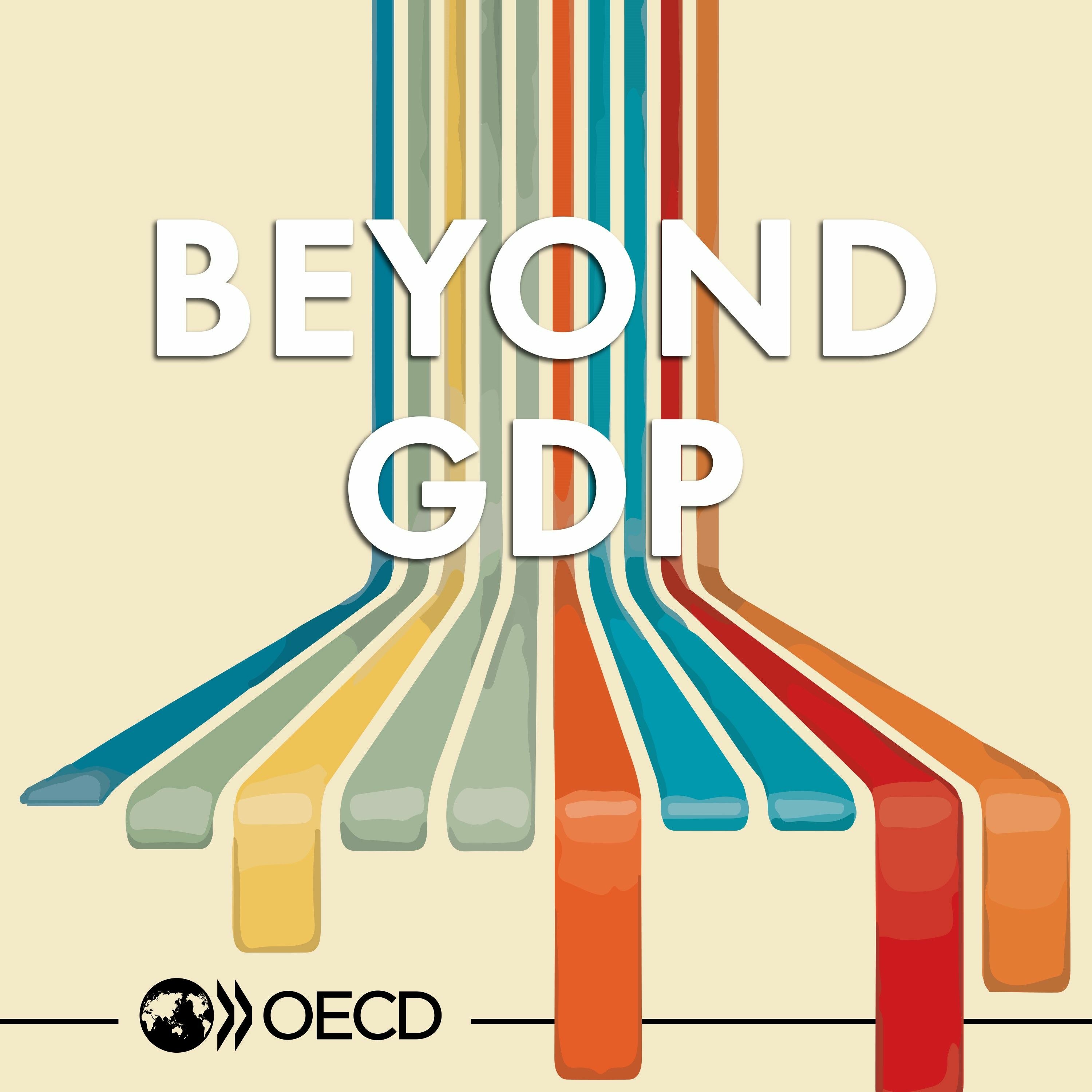

Young entrepreneurs have a huge role to play as slow productivity growth, climate change, demographic change and the digital transition come together in a perfect storm for many economies. The new OECD-EU “Missing Entrepreneurs” report finds that if youth (18-29 years old) participated in early-stage entrepreneurship at the same rate as “core age” men (30-49 years old), there would be an additional 3.6 million “missing youth entrepreneurs” in OECD countries. This accounts for about 11% of the total number of “missing entrepreneurs” in the OECD as young people face a range of barriers to success. David Halabisky from the OECD and Anita Tiessen, the CEO of Youth Business International, unwrap issues around money, mindset and motivation for young people in the world of business. Guest: Anita Tiessen, CEO of Youth Business International Host: David Halabisky
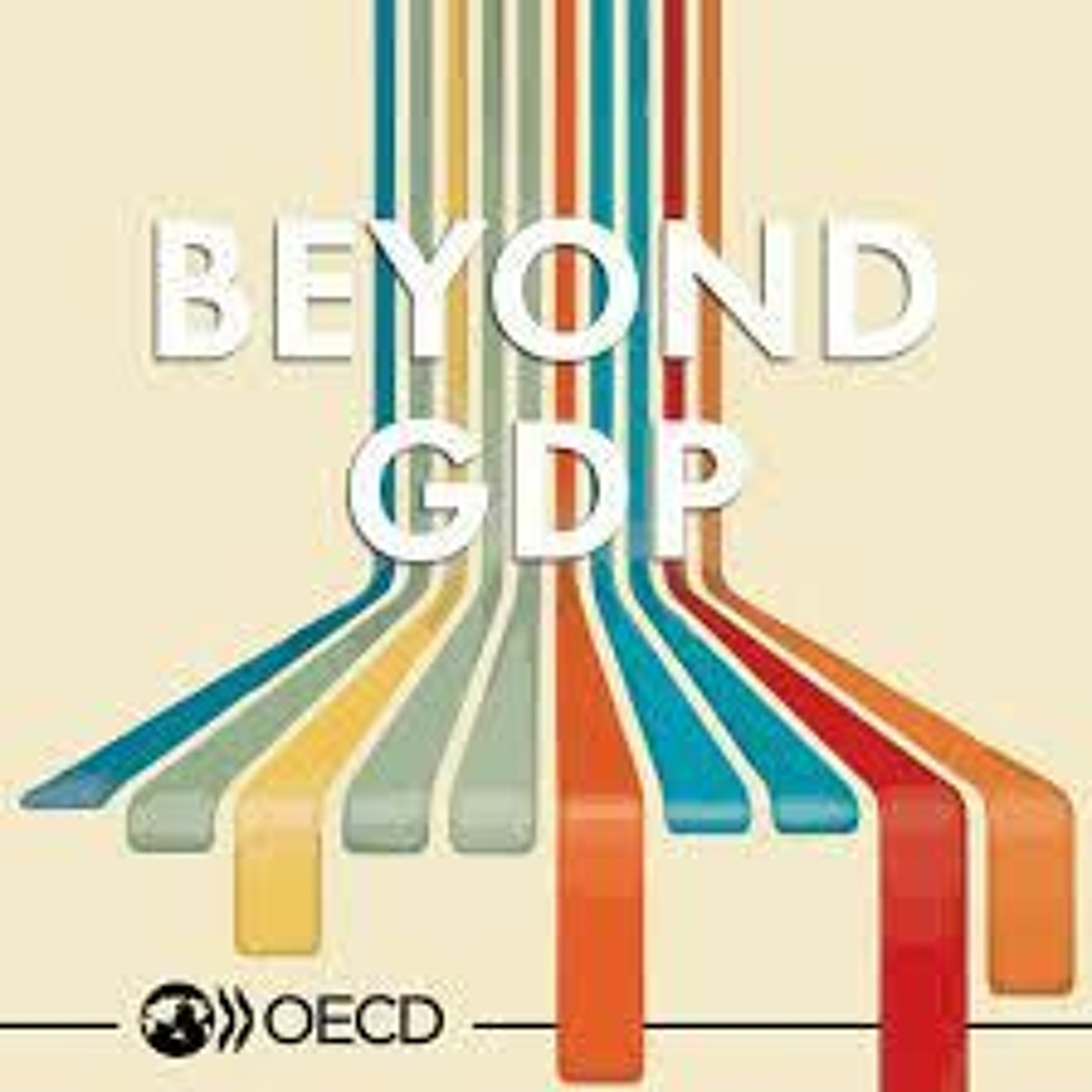

According to the UN Refugee Agency, more than 100 million people were forcibly displaced in 2022. With Russia's war of aggression against Ukraine, Europe has seen the biggest refugee crisis since the Second World War with more than 6 million people fleeing Ukraine. This is a big challenge for refugee protection and reception systems. Clearly something public services cannot stem on their own. This is where the social and solidarity economy steps in and steps up to both support governments and fill gaps and public support. This podcast discusses how the social and solidarity economy can fast track the labour-market integration of refugees and migrants. Guests: Anne Kjaer-Bathel: Co-founder and CEO of ReDI School of Digital Integration, Berlin Thomas Liebig, Principal Administrator, OECD Directorate for Employment, Labour and Social Affairs Host: Christine Langenbucher
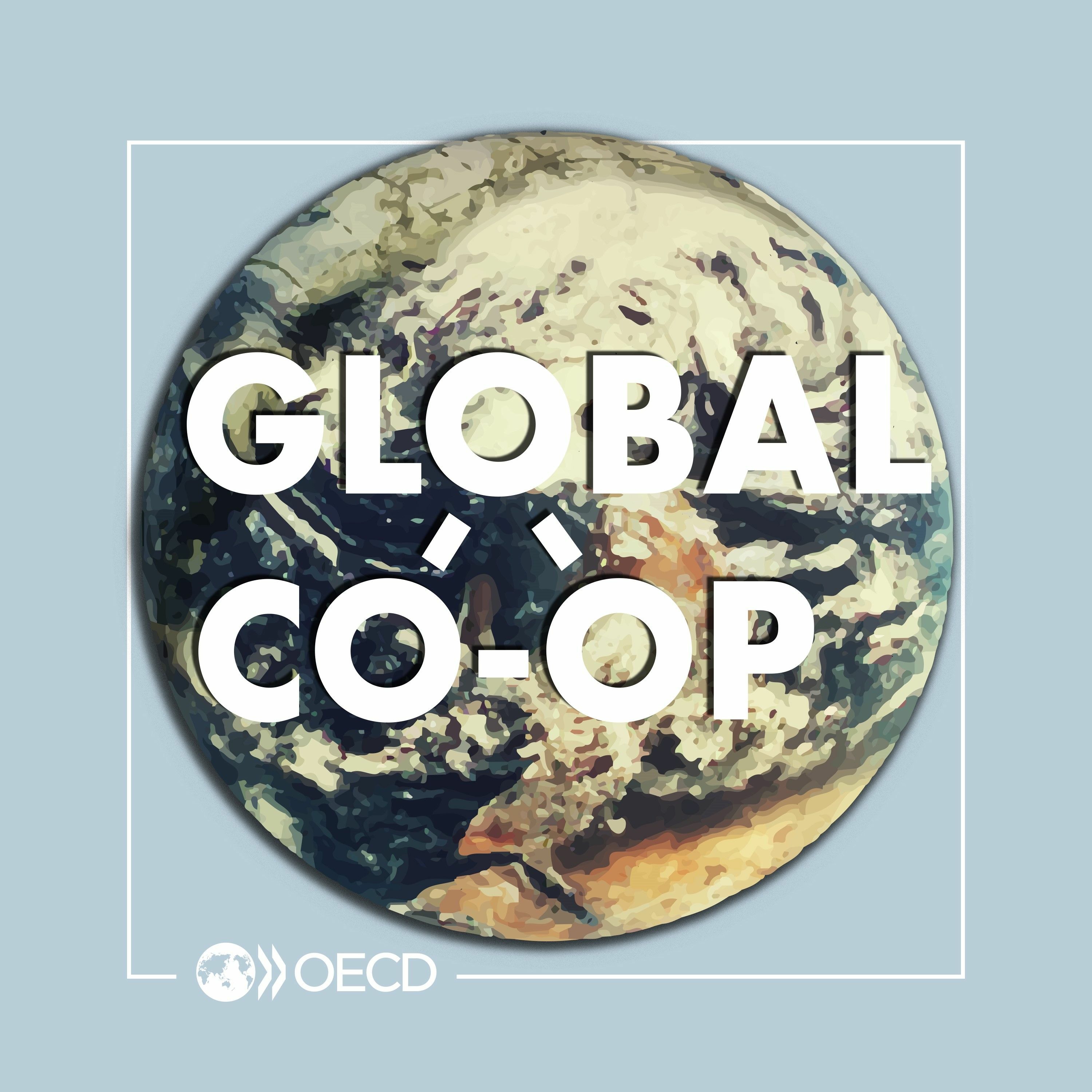

Digitalisation in procurement comes with a variety of opportunities, but also challenges. Can digital resources such as artificial intelligence, e-procurement and data systems improve the ways governments obtain services and goods? This podcast is the third and final episode of a series in collaboration with the MAPS Initiative, Methodology for Assessing Procurement Systems. Edwin Lau, OECD, Head of Division of Infrastructure and Public Procurement and Hunt La Cascia, Senior Public Sector Specialist at the World Bank, speak with us to help us understand the world of procurement digitalisation. Guests: Edwin Lau, OECD, Head of Division of Infrastructure and Public Procurement and Hunt La Cascia, Senior Public Sector Specialist at the World Bank Host: Robin Allison Davis Producer: Samia Basille
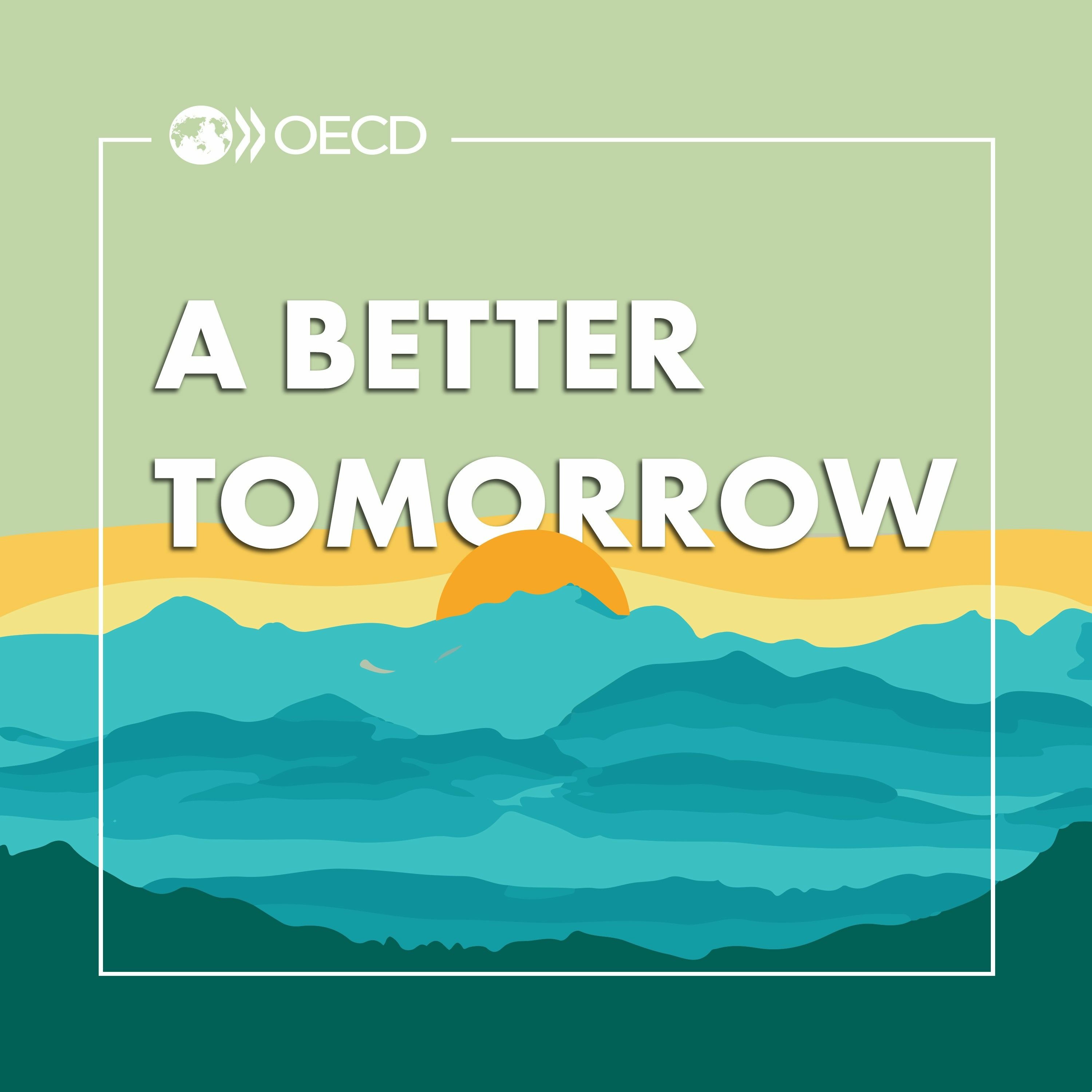

As urban heat waves become more frequent and severe, meet the leaders on the frontlines of responding to extreme heat in cities. The Chief Heat Officers for Santiago, Chile, and Athens, Greece, discuss their innovative strategies to spread awareness of the dangers of heat, keep vulnerable residents safe in scorching temperatures, and create more green spaces to cool their cities down. Guests: Cristina Huidobro, Chief Heat Officer for Santiago, Chile, and Elissavet Bargianni, Chief Heat Officer for Athens, Greece Host: Jessica Voorhees Learn more about OECD’s work on cities: https://www.oecd.org/cfe/cities/


Extreme heat is creating major challenges for cities. The urban “heat island” effect traps cities in a bubble of scorching temperatures, which endangers lives and puts pressure on emergency services and infrastructure. Often the poorest neighbourhoods bear the worst consequences of rising heat waves. Andrew Lombardi discusses how heat exacerbates inequalities in cities and breaks down what cities can do to save lives now and enhance heat resilience through better policies and practices. Guest: Andrew Lombardi, OECD Policy Analyst Host: Jessica Voorhees Learn more about OECD’s work on cities: https://www.oecd.org/cfe/cities/


In 2015, the United Nations released the Sustainable Development Goals to help create a more sustainable and equitable world. The 17 goals included procurement systems, calling governments to procure in a more sustainable manner. But how does this actually work? How can governments include sustainability in their procurement systems? And can sustainable public procurement help mitigate the climate crisis? Steven Schooner, Professor of Government Procurement Law at George Washington University, helps us to answer these questions and more on this podcast. This is the second episode in the series with MAPS. Guest: Steven Schooner, Professor of Government Procurement Law at George Washington University Host: Robin Allison Davis Producer: Samia Basille To learn more about the MAPS Initiative, go to MAPSinitiative.org.
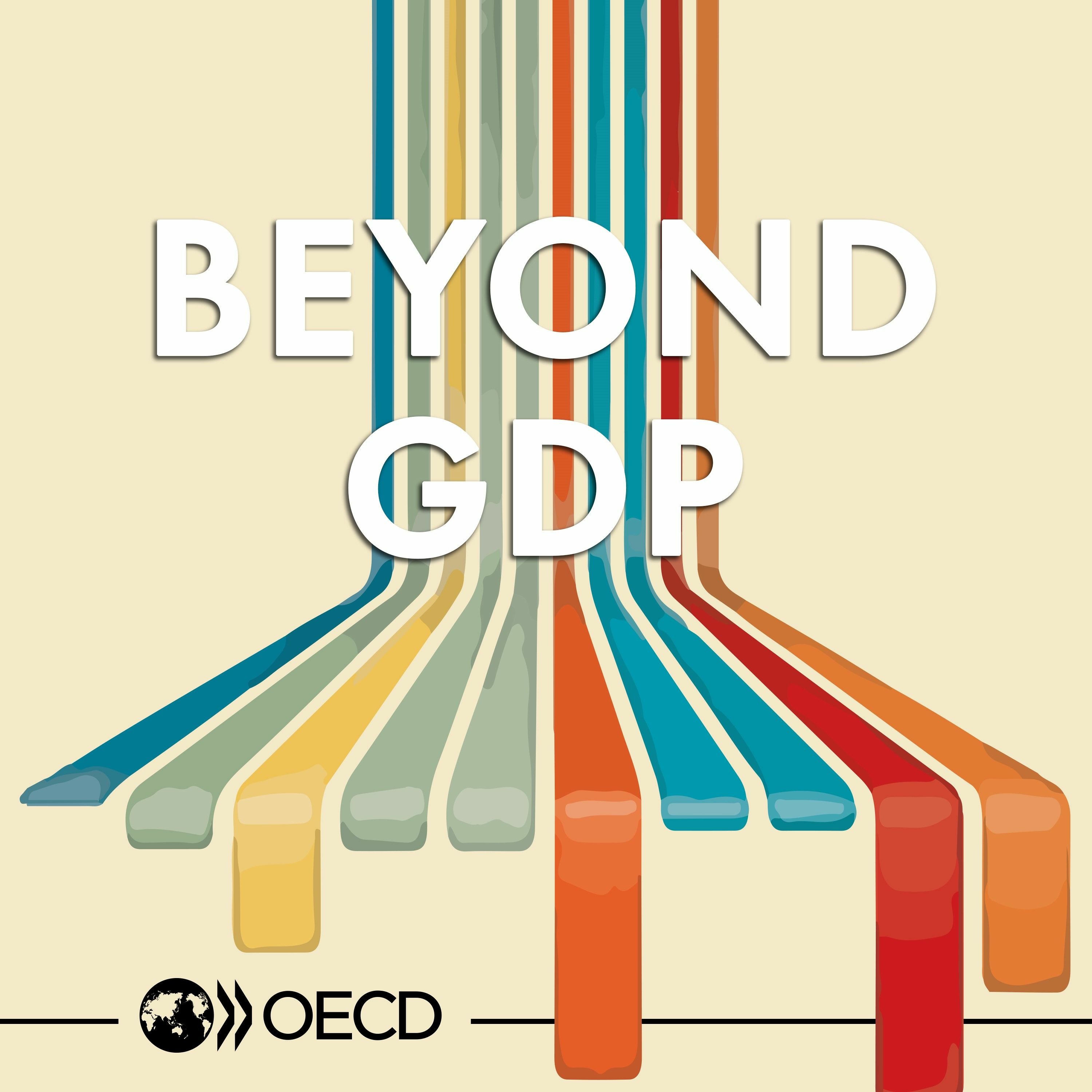

Over the past few decades, as trade and investment barriers have lessened, and transport and communication costs have declined, multinational enterprises or MNEs have become an increasingly important fixture in the global economy. As these entities begin to represent a larger share of global economic activity, the importance of monitoring them and understanding their behaviour has never been greater. However, MNEs cross borders by definition, making them notably difficult to keep track of at the national level. The new OECD UNSD Multinational Enterprise Information Platform gathers together data on the world's largest multinationals from a range of public sources. These data cover the geographical and digital scope of individual multinationals and an array of indicators, complementing major recent reforms to the international tax system led by the OECD and in response to the challenges arising from digitalisation. But what new benefits does this initiative deliver? What does the data reveal? And how can it be used for economic analysis? And what does this say about where the global economy is heading? This OECD Podcast aims to address these questions and more in conversation with one of our own data experts. Host: Ashley Ward Guest: Graham Pilgrim, Head of Real-Time Data Analytics, OECD Statistics and Data Directorate Producer: Anna Wahlgren, Ashley Ward, Robin Allison Davis To learn more about the OECD's work with multinational enterprises, go to: https://www.oecd.org/sdd/its/mne-platform.htm


When governments need to buy anything from office supplies to infrastructure, the process is more complex than your ordinary shopping trip. How do we know that governments are using good judgement when purchasing items or awarding contracts? Who advises governments on these processes to ensure that they are transparent, efficient, and cost effective? That's where MAPS, the methodology for assessing procurement systems, steps in. Diana Viljoen, from Global Affairs Canada and member of the MAPS Technical Advisory Group will answer these questions and more on this podcast. This is the first episode in the series with the MAPS Network. Guest: Diana Viljoen, Global Affairs Canada; MAPS Technical Advisory Group Host: Robin Allison Davis To learn more about the MAPS Initiative, go to MAPSinitiative.org.


Retaining talent of all ages has become one of the most important issues facing employers today. How are people 55 to 64 faring in today’s labour market and how can we build an effective, multi-generational workforce? The OECD’s Shruti Singh and AARP’s Lona Choi-Allum explore what needs to be done to ensure that everyone's talents and skills are put to best use. Guests: Lona Choi-Allum, Senior Research Advisor, AARP Shruti Singh, Senior Economist, OECD Host: Kate Lancaster Producer: Robin Allison Davis To learn more about the AARP's work on the aging workplace, go to: www.aarpinternational.org/globalemployersurvey www.aarpinternational.org/globalemployeesurvey www.aarpinternational.org/llel To read the OECD report, Retaining Talent at All Ages, go to: https://doi.org/10.1787/00dbdd06-en
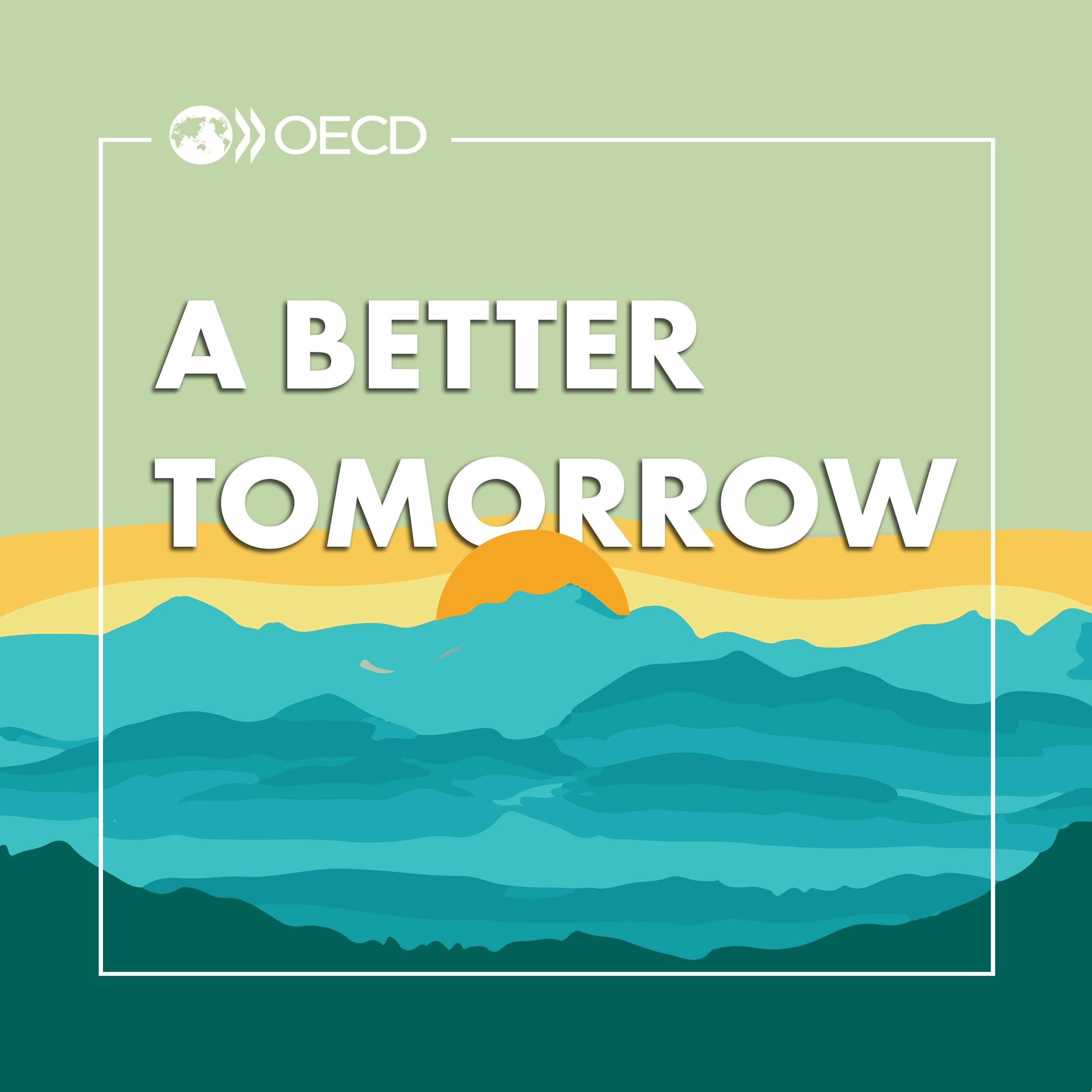

Bertrand Piccard est un « savanturier » psychiatre et explorateur. Il a fait le premier tour du monde en ballon en 1999, puis en avion solaire avec l'avion Solar Impulse en 2015-2016. En tant que Président de la Fondation Solar Impulse, il est aussi un « explorateur de solutions » face au plus grand défi de notre temps : le changement climatique. Après avoir survolé la terre, il travaille à sa sauvegarde et démontre que celle-ci est non seulement possible, mais aussi rentable. Il évoque ici des pistes innovantes et concrètes pour avancer : 1 500 solutions efficientes qui sont à la fois écologiques et rentables. Et face à un cadre juridique et réglementaire anachronique qui ne permet pasr toujours de mettre en place ces solutions, il propose 50 recommandations de loi clés en main pour le moderniser. Fidèle à l’esprit de pionnier de ses illustres ancêtres, Bertrand Piccard bouscule nos paradigmes et nos certitudes, ces dogmes qui nous font croire que beaucoup de choses sont impossibles. La protection de l'environnement est une aventure enthousiasmante, qui nécessite d'explorer de nouvelles manières de faire et de penser. Nous pouvons devenir les pionniers d’une saine modernité, dès maintenant... C’est ce que Bertrand Piccard démontre ici, avec la rigueur et l’ardeur d’un découvreur. Invité : Bertrand Piccard, Président de la Fondation Solar Impulse Animation : Anne-Lise Prigent Production : Robin Davis Pour en savoir plus Fondation Solar Impulse Lutter ensemble contre la crise climatique Forum inclusif sur les approches d'atténuation des émissions de carbone Page de l’OCDE sur l’environnement Pour s’abonner à la lettre d’information de l’OCDE : oe.cd/3JD Suivez-nous sur les réseaux sociaux : www.oecd.org/social-media © Podcasts de l’OCDE 2023


Is the current state of the modern man something to be concerned about? Does childhood well-being vary greatly between boys and girls? This podcast explores those questions and more with Richard Reeves, author of "Of Men and Boys Why the Modern Male is Struggling, Why It Matters and What to Do About It" and Olivier Thevenon, OECD economist and the Observatory on Well-Being, Inclusion, Sustainability and Equal Opportunity. Guests: Richard Reeves, Author of "Of Men and Boys Why the Modern Male is Struggling, Why It Matters and What to Do About It"; Olivier Thevenon, OECD Economist WISE Host: Robin Allison Davis Producer: Robin Allison Davis


L'Enfance est une période critique au cours de laquelle les individus développent un grand nombre de compétences nécessaires pour s'épanouir plus tard dans la vie. La promotion du bien-être des enfants n'est pas seulement une fin importante en soi, mais elle est également essentielle afin de préserver la prospérité et la soutenabilité de l'économie pour les générations futures. Cependant, le bien-être des enfants est très récent dans l'agenda politique. Olivier Thevenon, qui dirige l'Unité du bien-être des enfants au centre de l'OCDE pour le bien être, l'inclusion, la durabilité et l'égalité des chances, explique où nous en sommes aujourd’hui en matière de bien-être des enfants dans les pays de l’OCDE et examine les différences entre le bien-être des filles et des garçons. De plus, Olivier Thevenon évoque les enjeux liés à la pandémie de COVID-19, qui a plongé de nombreuses familles dans la pauvreté. Il se penche également sur l’action des pouvoirs publics et les plans d'actions dans les pays de l’OCDE pour améliorer le bien-être des enfants. Invité : Olivier Thevenon Animation : Kim Chardon Production : Robin Allison Davis


The social economy can help boost prospects for women… and men. One of the big problems in tackling gender equality is breaking down gender stereotypes that drive women into what have often been called “pink collar jobs”. These are jobs like childcare, education, personal and household services, plus social work. Nitya Nangalia from SEWA Bharat and Natalie Laechelt from the OECD unpack the role of the social economy in the quest to move beyond pink collar jobs. Guests: Nitya Nangalia, SEWA Bharat; Natalie Laechelt, OECD Economist Host: Shayne Maclachlan
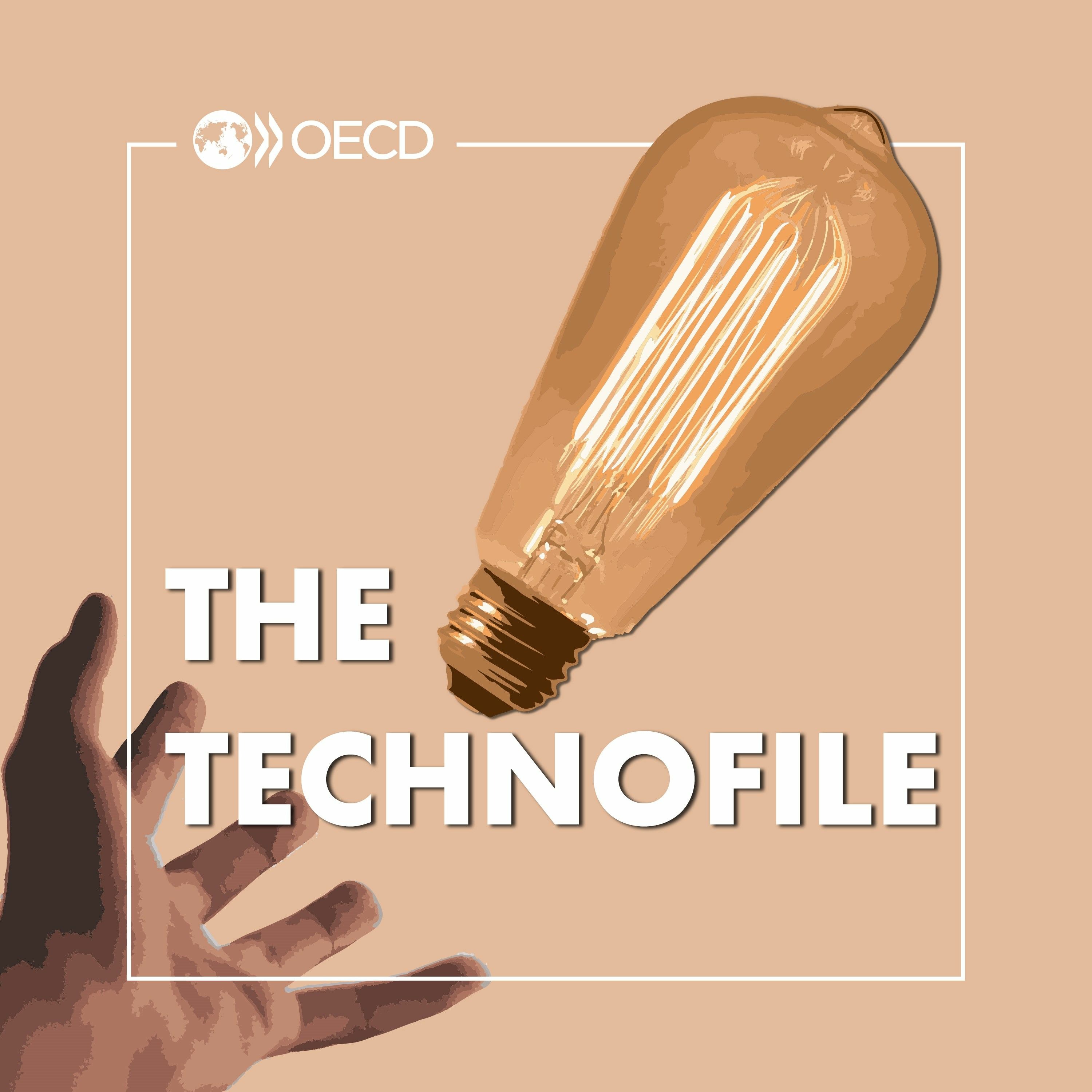

As technology continues to advance, we're more connected than ever. But with more benefits also come more risks. How can we ensure that we are protected from digital threats? In December 2022, the OECD released its Digital Security Recommendations to help keep individuals, businesses and governments secure online. Audrey Plonk, head of Digital Economy Policy division for the OECD's Science, Technology and Innovation Directorate, explains the Digital Security Recommendations and what they hope to achieve. To learn more about the OECD’s work on digital security, go to: www.oecd.org/digital/digital-security. Guest: Audrey Plonk, head of Digital Economy Policy division for OECD Science, Technology and Innovation Directorate Host: Robin Allison Davis Producer: Samia Basille
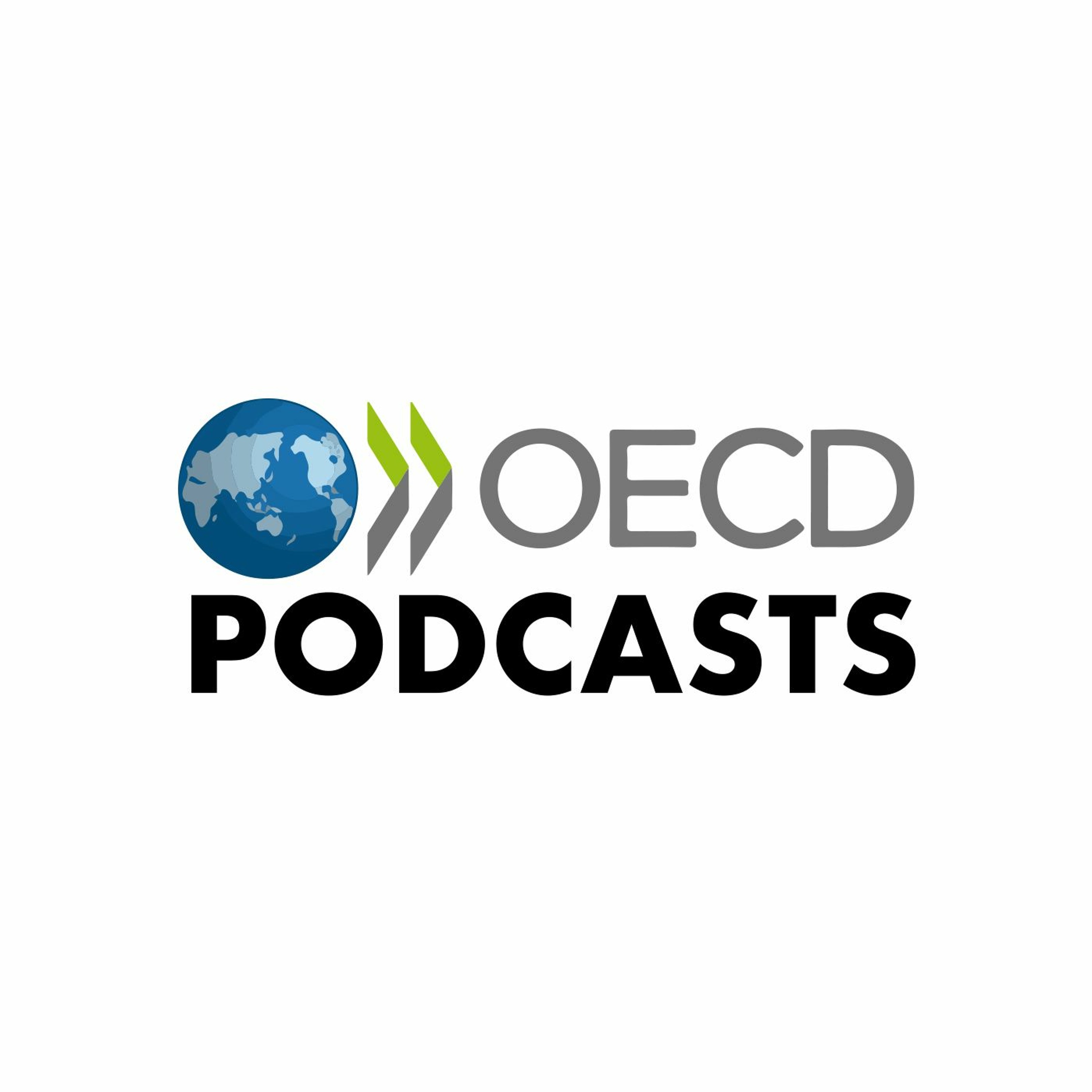

In 2022, OECD Podcasts did not shy away from the hard issues plaguing society today. Misinformation, domestic violence and burnout are only a few of the topics discussed this year with a variety of experts. Let's take a listen to some of the best podcast interviews done this year that you may have missed. Host: Robin Allison Davis Producer: Samia Basille Guests: Margaret Johnston Clarke, Ingrid Barnsley, Chiara Varazzani, Pascale Guy, Julio Bacio Torres, Sergio Gueirrero
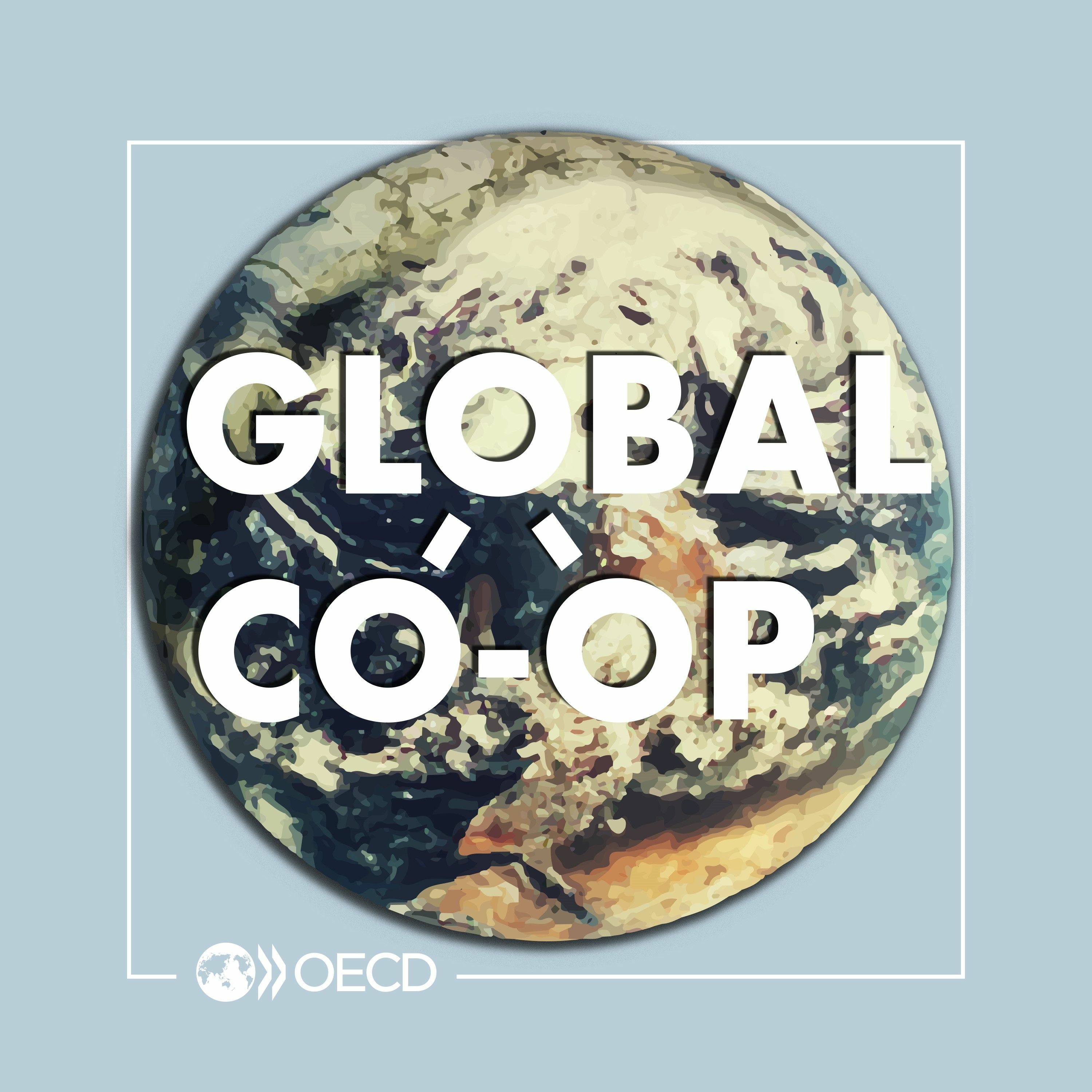

The last two years have seen unprecedented disruptions in global supply chains, brought about by a perfect storm of causes, with wide geopolitical implications that look to continue well into the future. How prepared were the public and private sectors? And what have we learned? We speak with Marion Jansen on how to make supply chains more resilient. Host: Christopher Mooney Guest: Marion Jansen, OECD Director of Trade and Agriculture Producer: Robin Allison Davis, Samia Basille To learn more about the OECD's work on trade, go to: https://www.oecd.org/trade/resilient-supply-chains/ https://www.oecd.org/trade/topics/trade-in-raw-materials/


For almost three years now, the tourism sector has been going through a really tough time. It was smashed by the COVID-19 pandemic and travel restrictions. After hitting 1.5 billion international tourist arrivals in 2019, international tourist arrivals worldwide plummeted by over 70%. It rebounded strongly in 2022 driven by pent up demand, household savings and the easing of travel restrictions – the so-called “revenge spend”. But now the sector faces an uncertain outlook – as the global economic slowdown and the fallout from Russia’s war in Ukraine brings new challenges. Tourism businesses are being hit by rising costs, and tight labour markets. The cost of living crisis is also putting pressure on household incomes and consumer spending. How can governments and businesses boost recovery in the short term and create a stronger, more sustainable tourism economy? Hosts: Shayne MacLachlan, Jane Stacey Guest: Sergio Gueirrero , Senior Director at Turismo de Portugal, Chair of the OECD Tourism Committee
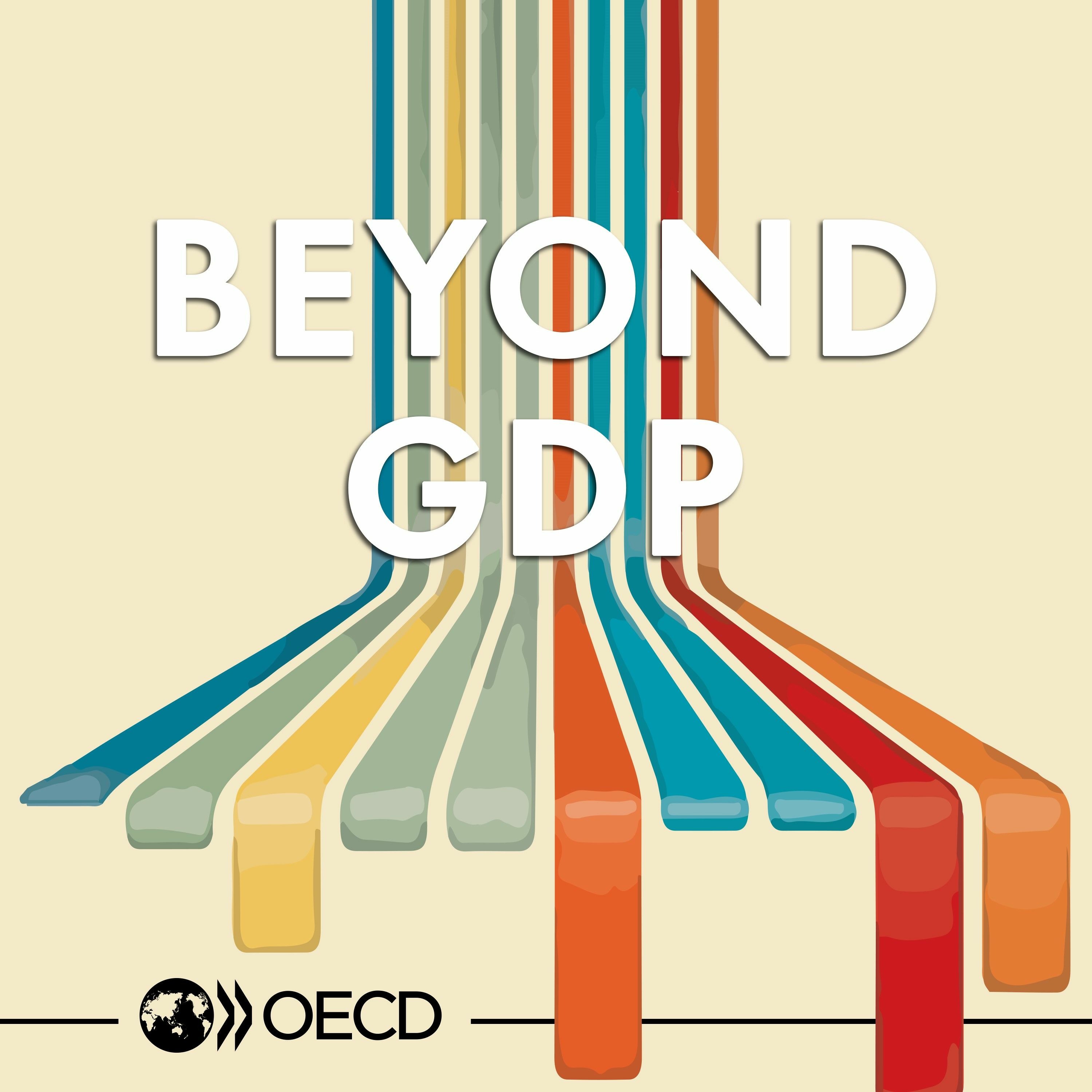

Young people are increasingly prioritising careers with positive social and environmental impacts. Globally, two-in-five young people see social impact as one of the deciding factors for their career choices. At the same time, almost 50% of young people in OECD countries would prefer to be self- employed rather than work as employees. Young people are seizing opportunities and leading social enterprises across the world but what are the challenges and best paths to follow? How do we give young people a seat at the table? What can policy makers do to help? Polly Akhurst from Amala gives us her insights. Host: Natalie Laechelt Guest: Polly Akhurst, the co-founder and executive director of Amala
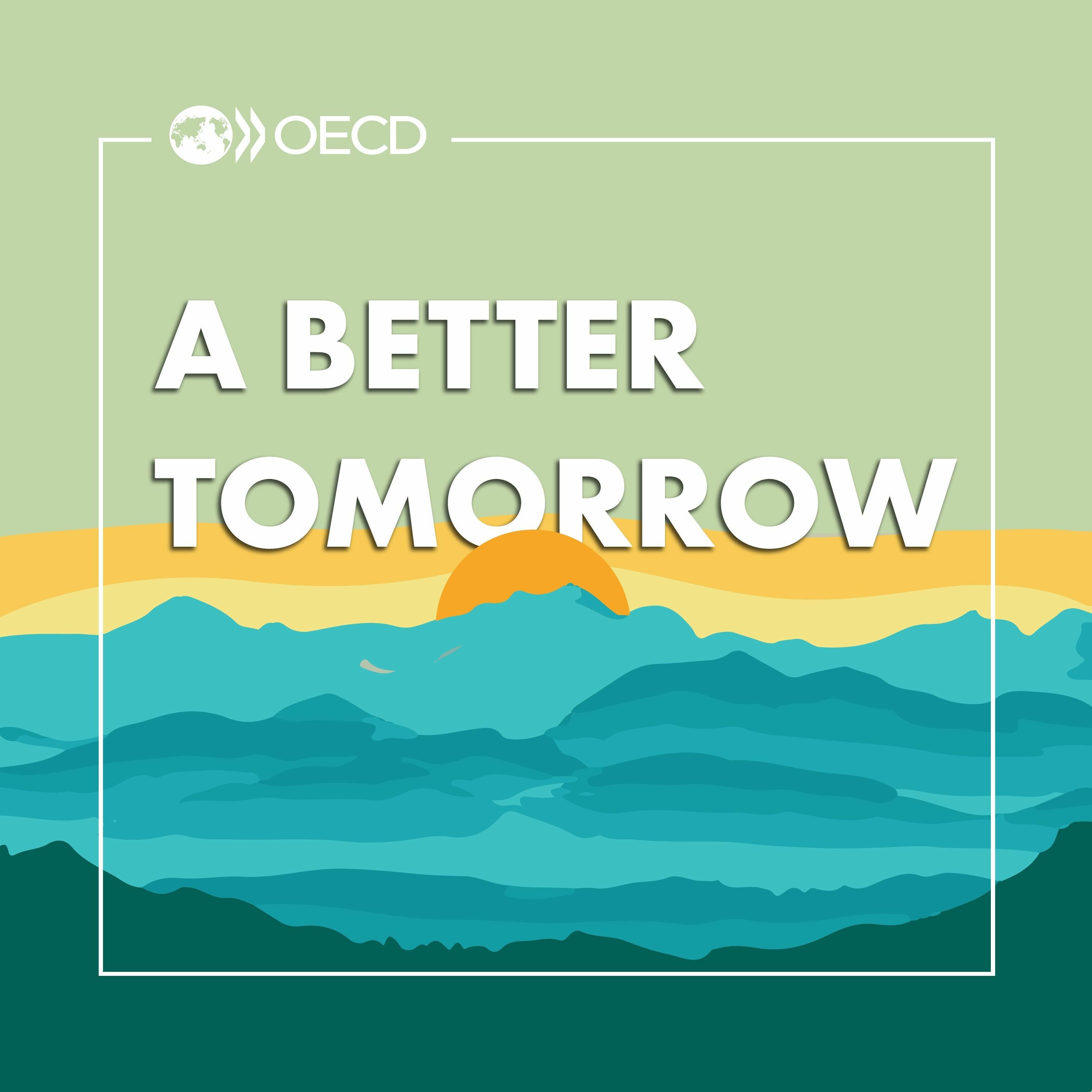

Inequalities not only affect our lives, but also the lives of our children in generations after us. How can we ensure that our children have more opportunities than we have, that generations after us are rising in society and not limited by sticky floors? Romina Boarini, director of the OECD Centre on Well-Being, Inclusion, Sustainability and Equal Opportunity, helps us understand social mobility, what it is, how it works, what government and societies can do to help and what the OECD is doing. To learn more about the OECD's work on social mobility and to view the Observatory on Social Mobility and Equal Opportunity, go to oe.cd/social-mobility. Guest: Romina Boarini, Director, OECD Centre on Well-Being, Inclusion, Sustainability and Equal Opportunity Host: Robin Allison Davis


Misinformation and disinformation have become some of the biggest threats to democracy in the 21st century. It's everywhere from stories of election fraud to vaccines. How can we combat misinformation and disinformation while still protecting freedom of speech? What can governments do to curb myths and disinformation? This podcast is the second in a series on Reinforcing Democracy in partnership with the OECD's Public Governance Directorate. Julio Bacio Terracino, Head of Public Integrity at the OECD, helps us make sense of the issues and how we can tackle them. To learn more about the OECD's work on democracy, go to https://www.oecd.org/governance/reinforcing-democracy/ Guest: Julio Bacio Terracino, OECD Head of Public Integrity Host: Robin Allison Davis


With temperatures rising and natural disasters occurring more frequently, the climate crisis is on everyone's minds. Countries have come together in an effort to address climate change via international cooperation. However, the climate crisis is worsening. Calls for concrete policy action are deafening; but to generate world class policy advice, we need world class evidence. The OECD compiles and produces data to understand and monitor the environment in a way that is coherent with economic accounting. But what does this mean exactly? Why is it important to measure our environment and our environmental impacts? What is the data telling us? And how can these indicators help policymakers? This OECD Podcast aims to address these questions and more in conversation with one of our own Environmental-Economic Accounting experts. Host: Ashley Ward Guest: Daniel Clarke, Environmental-Economic Researcher, OECD Statistics and Data Directorate Producer: Ashley Ward,
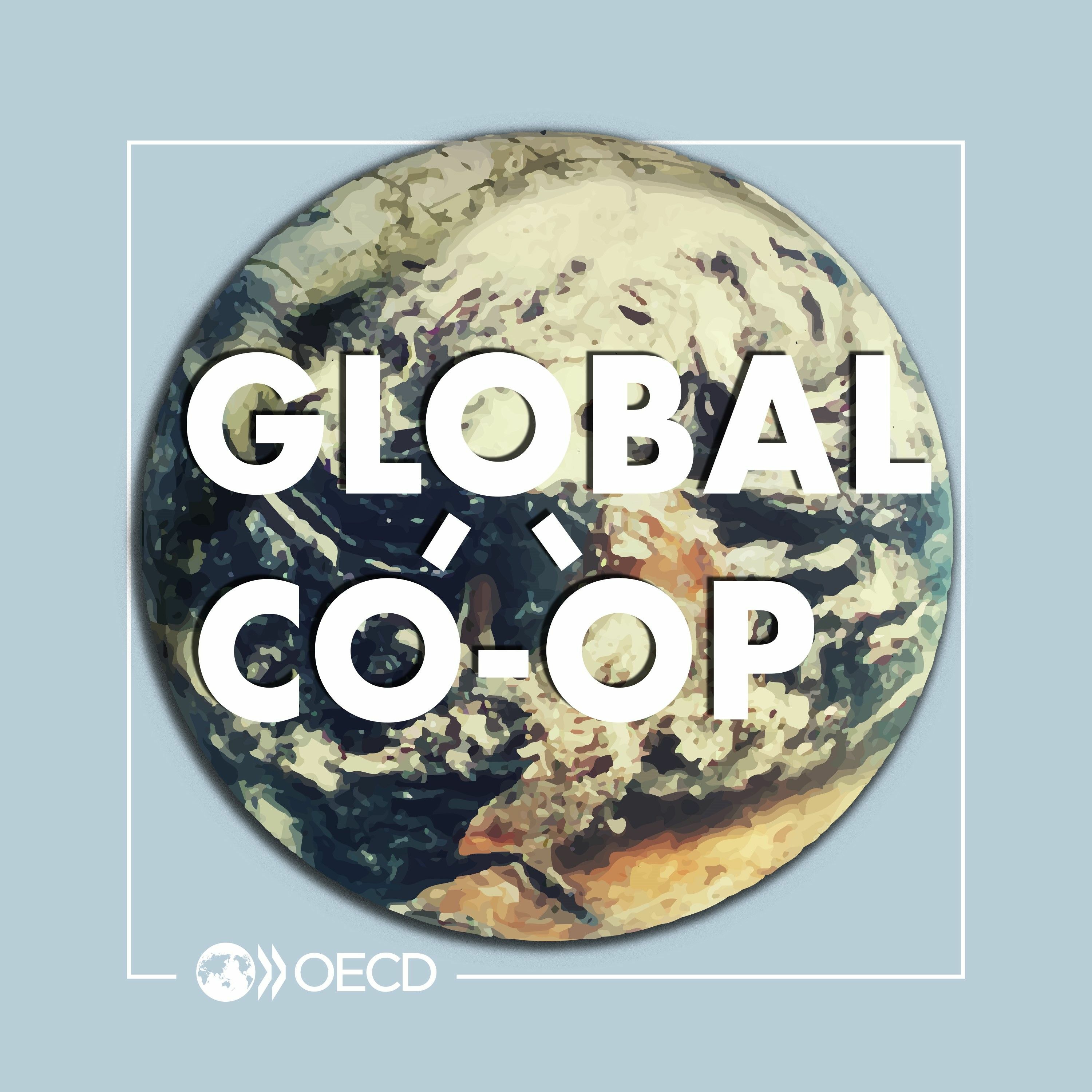

For a country to take on the most critical problems of our day, like climate change, it needs its people to be engaged and committed. Yet, as countries recover from the biggest health, economic and social crisis in decades, the trust citizens have in their government is under strain. How can this trust be won back? What drives public trust? How can policymakers build people's confidence in their government's capacity to be responsive, reliable, open, honest and fair? Elsa Pilichowski, Director for Public Governance of the OECD, helps us answer these questions. This podcast is the first in a two part series on reinforcing democracy, organised by the Directorate for Public Governance of the OECD. Guest: Elsa Pilichowski, Director for Public Governance, OECD Host: Christopher Mooney Producer: Robin Allison Davis To learn more about the OECD's work on democracy, go to: www.oecd.org/reinforcing-democracy
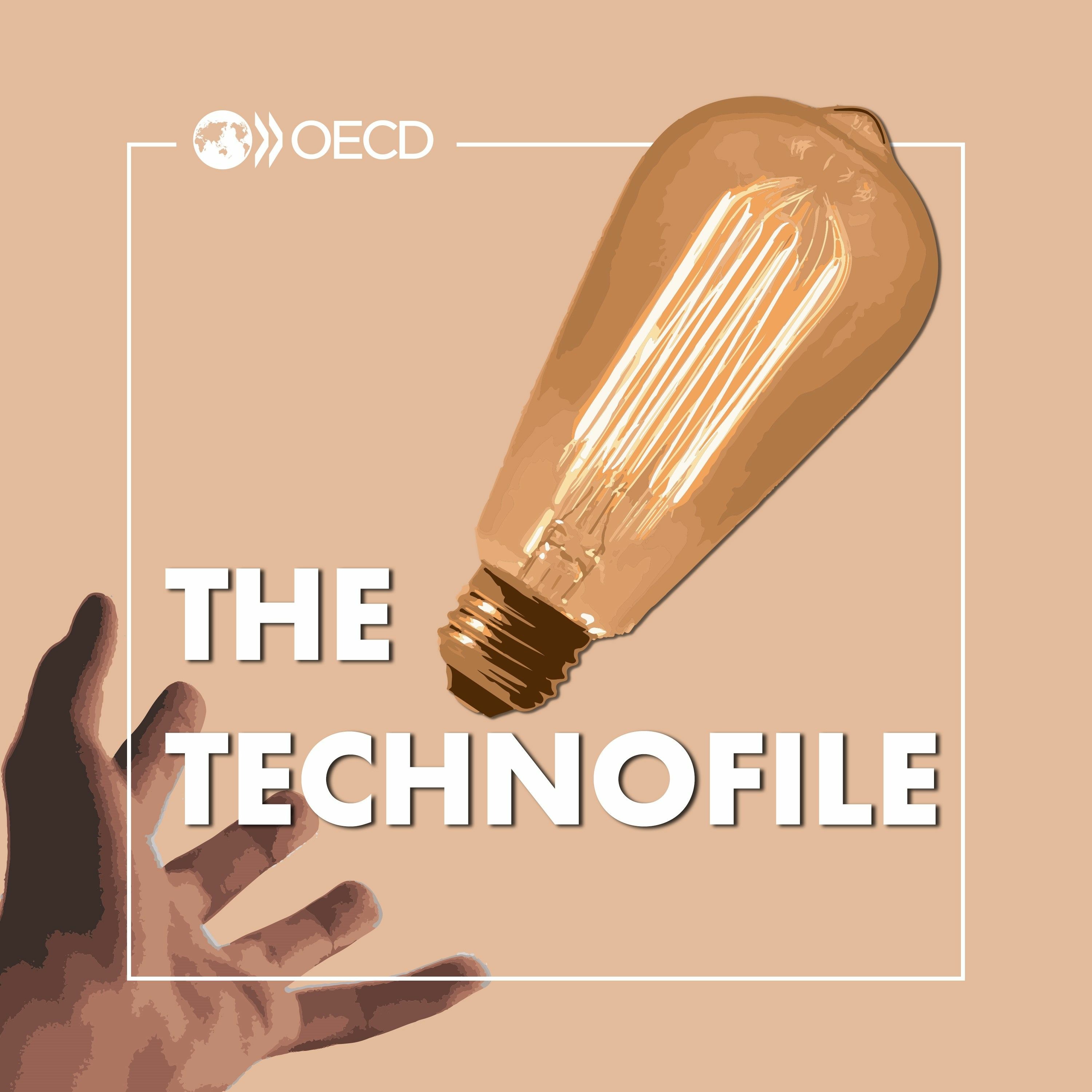

While the European Union is developing the Data Act, the Data Governance Act and the Artificial Intelligence (AI) Act, the issue of the data governance remains at the fore. In today’s podcast, we will try to answer some of these questions: What are the policy options for Europe’s data governance framework, especially with regard to AI, that align with a data justice perspective? How to foster a positive vision of AI as contributing to public goods and creating public value? How to recognise the rights and interests of different communities in data? To what extend is it possible to foresee risks and vulnerabilities when legislating on digital? We will address these questions with the help of Pernille Weiss, Member of the European Parliament’s Committees on Industry, Research and Energy and on the Environment, Public Health and Food Safety, and Linnet Taylor, Associate Professor of Data Ethics, Law and Policy at the Tilburg Institute for Law, Technology, and Society (TILT), where she leads the Global Data Justice project. This podcast is third in the 2022 podcast series on Artificial intelligence brought to you by the OECD’s Global Parliamentary Network and the European Parliament’s Panel for the Future of Science and Technology, also known as STOA. Guests: Linnet Taylor, Pernille Weiss Host: Christopher Mooney Producer: Samia Basille To learn more about the European Parliament’s Panel for the Future of Science and Technology’s work on AI, go to: https://www.europarl.europa.eu/stoa/en/home/highlights To learn more about the OECD Global Parliamentary Network, go to: https://www.oecd.org/parliamentarians/ To learn more about the OECD’s work on AI, go to: oecd.ai


Global environmental emergencies such as climate change call for us to put our money where our mouth is. An increasing number of governments, companies and financial institutions have committed to reach net zero emissions by 2050. Is that enough to help us meet the goal of the Paris Agreement of limiting the average global temperature increase to 1.5 °C? If not, what more can be done to bridge this gap? That's where Transition Finance steps in. Transition finance will be one of the key topics discussed at the upcoming OECD Forum on Green Finance and Investment (5-7 October 2022). Listen in to learn about transition finance - what it is, why it is needed and what the key challenges are. Guests: Kate Levick, Associate Director, Sustainable Finance, E3G Elia Trippel, Policy Analyst, Green Finance and Investment, OECD Host: Robin Allison Davis To learn more about the OECD's work on Transition Finance, go to: www.oecd.org/cgfi To register for the OECD Forum on Green Finance and Investment, go to: : https://www.oecd-events.org/oecd-forum-on-green-finance-and-investment/registration/registration o Get the latest OECD content delivered directly to your inbox! Subscribe to our newsletters: www.oecd.org/newsletters Follow us on social media: www.oecd.org/social-media


La planète est aujourd’hui en proie à des sécheresses dévastatrices. L'été 2022 a été décrit comme une saison en enfer, avec un changement climatique qui est devenu très concret : on a pu constater l’assèchement des cours d’eau et les ravages de très violents feux de forêt. Un rapport publié en août 2022 par l'Observatoire européen de la sécheresse indiquait que près des deux tiers du territoire européen étaient en situation de sécheresse ou en état d’alerte à cause des canicules et de l’extrême faiblesse des précipitations. Cette situation est lourde de conséquences, que ce soit pour la production d’électricité, le rendement des cultures, la navigation intérieure ou beaucoup d’autres secteurs. Selon l'Observatoire mondial sur la sécheresse, L’Europe a vécu sa pire sécheresse depuis près de 500 ans... Et l’Europe n’est bien sûr pas la seule touchée : de la Corne de l’Afrique jusqu’à l’ouest des États-Unis, des sécheresses sévères menacent les moyens de subsistance et même la vie des habitants. Que faire ? Xavier Leflaive, chef de l’équipe Eau à la Direction de l’environnement de l’OCDE, évoque les enjeux et les pistes d’action en compagnie d’Anne-Lise Prigent. Invité : Xavier Leflaive Animation : Anne-Lise Prigent Production : Robin Allison Davis


The world is suffering from a devastating drought. According to an August report from the European Drought Observatory, nearly two-thirds of European territory is either experiencing drought or on high alert, due to stifling heatwaves and minimal rainfall. The consequences are far-reaching: electricity production, crop yields, and inland shipping are just a few of the sectors being hit, as wildfires expand and rivers run dry. Europe isn’t alone—from the Horn of Africa to the Western United States, severe drought is threatening lives and livelihoods. Xavier Leflaive, Water Team leader at the OECD Environment Directorate, joins host Karina Piser to discuss what’s at stake. To learn more about the OECD's work on water, go to www.oecd.org/water Guest: Xavier Leflaive, Water Team leader at the OECD Environment Directorate Host: Karina Piser Producer: Robin Allison Davis
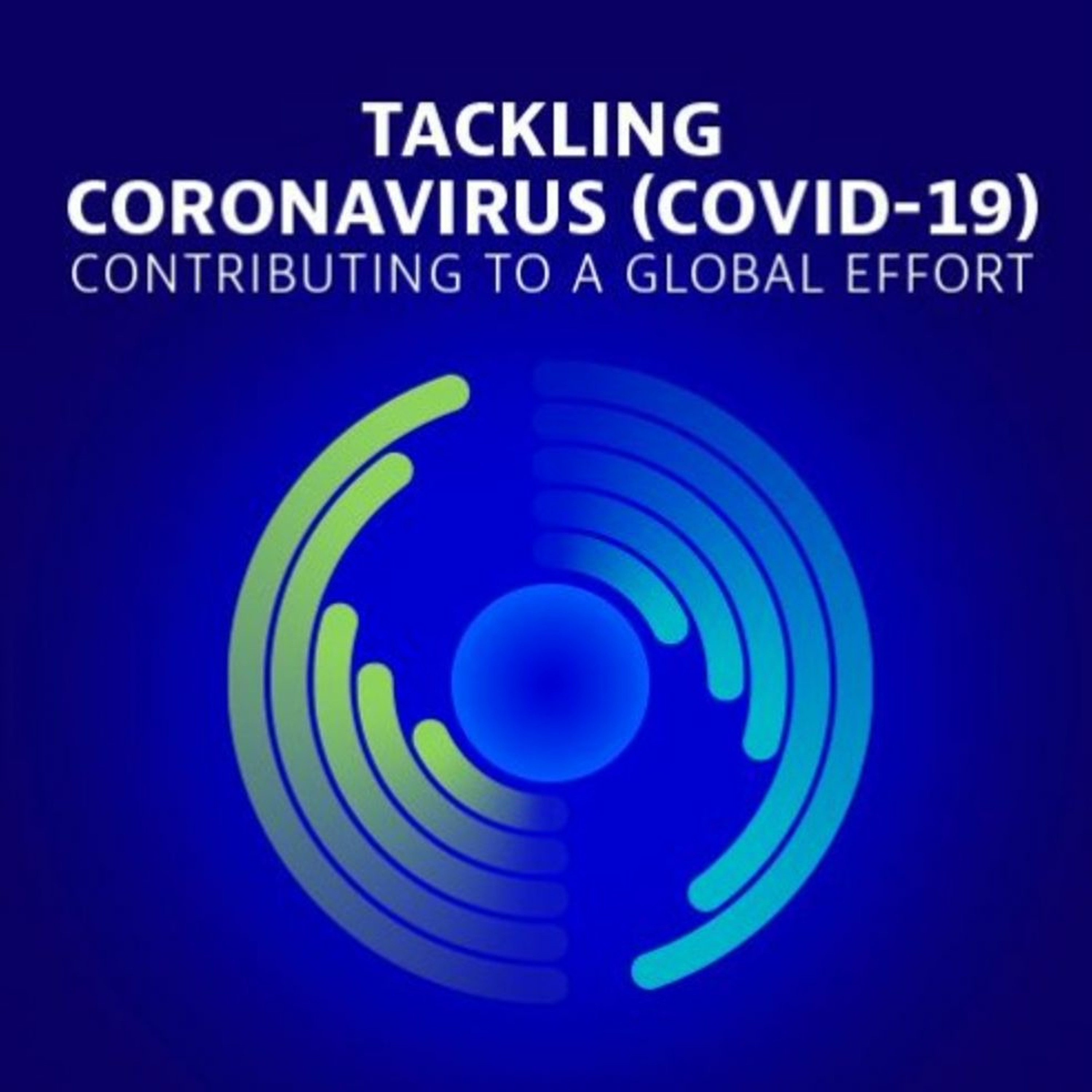

It’s been a tough two years for women. Early in the COVID-19 pandemic, women were hit harder by job losses, leading many to call it a “she-cession”. But as the pandemic worse on we started to see wider impacts too. We saw women on the front line of the crisis response, making up 75% of the workforce in health and social care. Women were taking on more work at home due to school and childcare closures. We saw women feeling more isolated from social network. We also saw a shadow pandemic – the rise in domestic violence as lockdowns trapped women with abusive partners. These took their toll. After two years, more than 40% of women in Europe were reporting that the pandemic had a major negative impact on their mental health. These cumulative effects are what we call the Great Exhaustion. What about women entrepreneurs and how should local governments deal with the great exhaustion and support women with care responsibilities? Host: Andrew Paterson Guest: Rae Cooper, Professor of Gender, Work and Employment Relations at the University of Sydney, Australia


The European Parliament and Council are currently negotiating the Artificial Intelligence Act, which introduces common regulatory and legal framework for Artificial Intelligence (AI) in all domains except the military. However, the negotiations pose several challenges for legislators. How should the risk categories be established? Do they take into account unintended impacts of AI? What divergences between public and private sectors could emerge, and how can they be adressed? And how is the AI Act going to help protecting fundamental rights and values? We will answer these questions with Maria-Manuel Leitão-Marques, MEP from Portugal, who is the Vice-Chair of the Committee on the Internal Market and Consumer Protection and a member of the OECD Parliamentary Group on AI; and Ilina Georgieva, research scientist working on AI, cyber regulation and cyber norms at the Netherlands Organisation for Applied Scientific Research (TNO), an independent research organisation. This podcast is second in the 2022 series on Artificial intelligence, brought to you by the OECD’s Global Parliamentary Network and the European Parliament’s Panel for the Future of Science and Technology, also known as STOA. Guests: Maria-Manuel Leitão-Marques, Ilina Georgieva Host: Christopher Mooney To learn more about Netherlands Organisation for Applied Scientific Research, go to https://www.tno.nl/en/ To learn more about the EU Parliament’s Panel for the Future of Science and Technology’s work on AI, go to: https://www.europarl.europa.eu/stoa/en/home/highlights To learn more about the OECD Global Parliamentary Network, go to: https://www.oecd.org/parliamentarians/ To learn more about the OECD’s work on AI, go to: oecd.ai
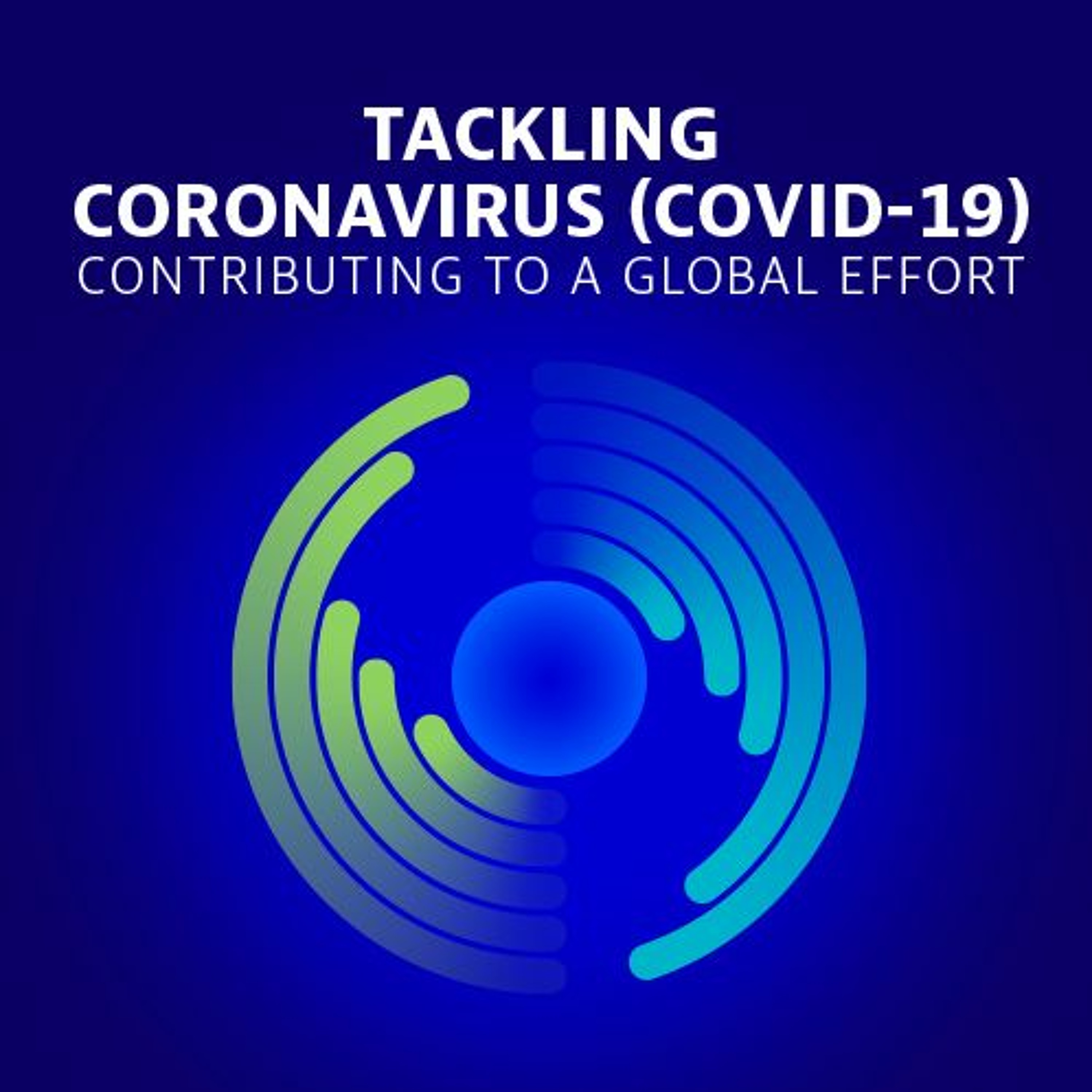

Cultural and creative sectors have been profoundly impacted by the COVID-19 pandemic. The overall contribution to global gross value added (GVA) of the sector fell by around 21% between 2019-20. 10 million jobs were lost worldwide in these industries. However, the impact of the pandemic has been uneven. Businesses with strong digital content have done very well, such as the gaming and music streaming services. Public support measures helped to cushion some of the COVID-19 blow, but now we need a sharper focus on the diverse needs of culture and creative industries for a stronger recovery. To learn more about the OECD's work in culture, go to: oe.cd/pub/culture. Guest: Katia Travkina – OECD Policy Analyst, Culture and Creative Sectors Host: Shayne MacLachlan - Communications and Public Affairs Manager, OECD Centre for Entrepreneurship, SMEs, Regions and Cities (CFE)


Lower your thermostat and bring a reusable bag. Commute by bicycle and recycle. These are all everyday life actions, promoted to help the climate change crisis. But how is it decided what changes we should make in our lives? How easily do people change their behaviour? Can it actually make a difference? Understanding human behaviour works hand-in-hand with climate change policy and we're speaking about this with Chiara Varazzani, OECD lead behavioural scientist and Kevin Green, Vice President of RARE, Centre for Behaviour in the Environment. To learn more about the OECD's work on behavioural science and the Behavioural Insights projects, go to OECD-opsi.org. To learn more about the OECD's work on climate, go to OECD.org/Climatechange. To learn more about RARE's work, go to Rare.org. Guests: Chiara Varazzani, OECD lead behavioural scientist; Kevin Green, Vice President of RARE, Centre for Behaviour in the Environment Host & Producer: Robin Allison Davis